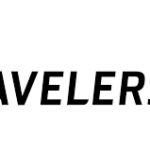Introduction
In today’s dynamic travel industry, a B2B travel agency plays a critical role in connecting businesses with tailored travel solutions. From corporate travel management to industry-specific packages, these agencies streamline travel processes for companies. This article explores how to run a successful B2B travel agency, highlighting key strategies, market trends, and tools to thrive in this competitive sector.
What is a B2B Travel Agency?
A B2B travel agency focuses on providing travel-related services to other businesses rather than individual consumers. Services include:
- Corporate travel management.
- Bulk ticketing and accommodation.
- Exclusive access to industry rates and packages.
- Customizable travel solutions tailored to company needs.
By partnering with airlines, hotels, and other travel providers, B2B travel agencies offer businesses cost-effective and seamless travel experiences.
Why Choose a B2B Travel Agency?
Businesses prefer B2B travel agencies for:
- Cost Efficiency: Negotiated corporate rates for travel services.
- Time Savings: Streamlined booking processes.
- Expert Support: Dedicated account managers for quick issue resolution.
- Scalability: Solutions that grow with company needs.
7 Game-Changing Strategies for B2B Travel Agency Success
1. Identify Your Target Market
Understanding your target market is essential for creating tailored solutions. Key segments include:
- Corporate Clients: Small, medium, and large enterprises needing frequent travel.
- Event Planners: Businesses requiring bulk travel bookings for conferences or exhibitions.
- Niche Markets: Industries like sports teams, educational institutions, or medical tourism.
2. Leverage Technology
Invest in cutting-edge technology to enhance customer experience.
- Travel Management Software: Tools like SAP Concur or Egencia automate booking and expense tracking.
- APIs and Integrations: Connect with airlines, hotels, and GDS systems for real-time availability and pricing.
- Mobile Apps: Offer clients a seamless way to manage their itineraries on the go.
3. Establish Strategic Partnerships
Partnering with travel providers ensures access to competitive rates and exclusive perks.
- Airlines: Negotiate discounts and loyalty benefits for frequent travelers.
- Hotels: Offer clients preferred rates and complimentary upgrades.
- Transport Services: Include car rentals and ride-share options in packages.
4. Offer Customized Travel Solutions
Tailor travel packages to meet the unique needs of each client. Examples include:
- Flexible Itineraries: Allow businesses to adjust travel schedules without penalties.
- Bundled Services: Combine flights, accommodations, and transportation for cost savings.
- Sustainability Options: Offer eco-friendly travel solutions to meet CSR goals.
5. Focus on Corporate Travel Trends
Stay ahead by adapting to emerging trends:
- Bleisure Travel: Combining business trips with leisure activities.
- Virtual Meetings Integration: Incorporating hybrid travel solutions for events.
- Sustainability: Providing carbon-offset programs for environmentally conscious companies.
6. Prioritize Customer Relationship Management (CRM)
Effective CRM ensures long-term success.
- Use tools like Salesforce to track client preferences.
- Offer 24/7 customer support for emergencies.
- Regularly seek feedback to improve services.
7. Market Your Services Effectively
A strong marketing strategy attracts and retains clients.
- Digital Marketing: Use SEO, PPC, and social media to reach target audiences.
- Content Marketing: Publish blogs, case studies, and white papers showcasing expertise in B2B travel solutions.
- Networking: Attend trade shows and industry events to establish connections.

Benefits of a B2B Travel Agency
| Benefit | Description |
|---|---|
| Cost Savings | Access to exclusive business rates. |
| Time Efficiency | Streamlined travel booking processes. |
| Dedicated Support | Personalized services for each client. |
| Flexibility | Customizable solutions for unique needs. |
Challenges Facing B2B Travel Agencies
While the industry is lucrative, it comes with challenges:
- Competition: Rising number of online travel platforms.
- Economic Fluctuations: Impact of global events like pandemics.
- Technology Adaptation: Staying updated with the latest tools.
Future of B2B Travel Agencies
The future of B2B travel lies in innovation and adaptability.
- Artificial Intelligence: AI-driven chatbots for faster customer service.
- Blockchain: Secure payment solutions and transparent transactions.
- Personalization: Hyper-personalized travel solutions for individual clients.
How to Start a B2B Travel Agency
Step-by-Step Guide:
- Research the Market: Identify demand and competition.
- Build a Strong Network: Partner with airlines, hotels, and other providers.
- Develop a Business Plan: Outline goals, target clients, and marketing strategies.
- Invest in Technology: Use advanced tools to streamline operations.
- Focus on Marketing: Build an online presence and network actively.
Frequently Asked Questions (FAQs)
1. What is the difference between a B2B and B2C travel agency?
A B2B travel agency serves other businesses, while a B2C travel agency caters to individual travelers.
2. How can a B2B travel agency attract corporate clients?
By offering customized travel solutions, exclusive discounts, and excellent customer support.
3. What tools are essential for running a B2B travel agency?
Travel management software, CRM tools, and API integrations are crucial for efficiency.
Conclusion
A B2B travel agency is a powerful player in the travel industry, offering businesses tailored solutions to meet their unique travel needs. By leveraging technology, forming strategic partnerships, and staying updated on trends, agencies can position themselves as industry leaders. For those looking to establish or expand a B2B travel business, following these strategies ensures success in this ever-evolving market.
External Link: Learn more about corporate travel trends at Travel Pulse.
For More Blog Visit: Tourtripguide


